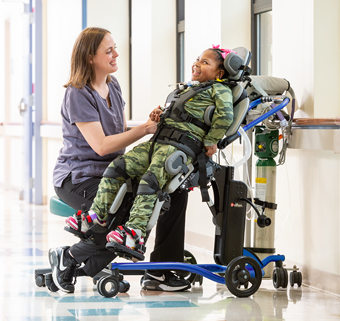Evidence Update
Improving Transitional Services for Students with Disabilities
| April 2017 For a child with disabilities, few transitions are as fraught as the passage from youth to adult, usually around age 21. While the Individuals with Disabilities Education Act (IDEA) makes some provision for transitional services for youth as they prepare to move out of the school system for “further education, employment or independent living,” these services are often poorly defined and students leaving the schools lack the confidence and skills necessary to succeed. Recognizing this deficiency, the authors of a recent study took a look at how to best prepare such students for the adult world. Best of all, they looked outside the box.
For a child with disabilities, few transitions are as fraught as the passage from youth to adult, usually around age 21. While the Individuals with Disabilities Education Act (IDEA) makes some provision for transitional services for youth as they prepare to move out of the school system for “further education, employment or independent living,” these services are often poorly defined and students leaving the schools lack the confidence and skills necessary to succeed. Recognizing this deficiency, the authors of a recent study took a look at how to best prepare such students for the adult world. Best of all, they looked outside the box.
Knowing that individuals with disabilities have compromised fitness levels, the authors drew on research showing that the best predictors of successful workforce and vocational performance for these individuals are high-school employment training, work experience, household responsibilities and functional training. This, in turn, led them to the field of occupational health. A respected and deeply researched practice area, occupational health has a wealth of standardized evaluations and programs to prepare those returning to the work-force after injury. Here, goal-oriented programs aim to restore systemic, neurological, musculoskeletal and cardiopulmonary functions. In this regard, occupational health shares many features with school-based physical therapy services. So why not incorporate research from occupational health into the evaluation and interventions for school-based transitional training? Great question, it turns out.
The authors tested their hypothesis with two case studies. Two students with intellectual disabilities participated in work capacity performance tasks, therapeutic and functional exercises tailored to their specific needs. After three months of intervention, both made significant advances in their work category levels. This is huge because it broadens the scope of workforce jobs available to them.
Although this study was small in scale, the authors show that with standardized evaluations and interventions, youths with disability have the capacity to improve work performance for a smoother transition into the workforce. Certainly this is a call for more resources and documentation in this area. But beyond that, it highlights the importance of continually looking forward, making plans for the future, for each student.
Reference: Johnson C, Rose D. School-Based Work Capacity Evaluation in Young People with Intellectual Disabilities: 2 Case Reports. Pediatr Phys Ther. 2017;29(2): 166-72.




